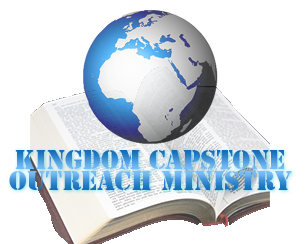You are here
CELEBRATING CHRIST IN PENTECOST
“Then you shall keep the FEAST of WEEKS to the LORD your God with the tribute of a freewill offering from your hand, which you shall give as the LORD your God blesses you” – Deuteronomy 16:10
CELEBRATING CHRIST in PENTECOST – also called the Feast of Weeks – relates to another divinely-commanded Jewish feast: “Three times in a year all your males shall appear before the LORD your God in the place which He chooses; at the Feast of Unleavened Bread, at the FEAST of WEEKS, and at the Feast of Tabernacles; and they shall not appear before the LORD empty-handed” (Dt.16:16). Here, three important feasts are cited: Unleavened Bread, Pentecost, and Tabernacles. The Feast of Pentecost celebrates the anniversary of God giving His people the Law at Mt. Sinai, while also marking the time in which the first fruits of the harvest are dedicated to the Lord at the Temple. In Hebrew, the Feast of Weeks is called “Shavuot,” literally meaning “weeks.” This feast is full of biblical significance – both from the Old and New Testaments.
The celebration of the Feast of Weeks is commanded multiple times throughout Scripture: “And you shall observe the FEAST of WEEKS…” (Exo.34:22). In Deuteronomy 16:10, God commands the Israelites to give a freewill offering according to the measure in which they have been blessed, have a holy convocation, do no laborious work, and present a new grain offering to the Lord. This is the only biblical festival and Jewish holiday that doesn’t have a designated date of celebration. The biblical command states that the celebration takes place seven weeks (49 days) after the Feast of First Fruits, which is the Sunday after Passover.
In the New Testament and Christian circles, the Feast of Weeks is called “Pentecost”, deriving from the Greek word for “fifty” (pentekosta), since the Feast of Weeks is celebrated on the fiftieth day following the seven weeks (49 days) of counting. In Acts 2:1-13, a momentous event that changed history happened on the day of Pentecost: “And when the day of PENTECOST was fully come, they were all with one accord in one place” (Acts 2:1). Christ’s followers were gathered in the Upper Room when a sound like rushing wind filled the room. Then, what looked like tongues of fire rested on each person’s head, signifying the indwelling of the Holy Spirit, like the Lord had promised.
On Passover, God’s people were finally released from bondage in Egypt; and at the Feast of Weeks they were instructed on how to live post-slavery life well. Explicit parallels are evident between the Feast of Weeks in the Old Testament and the Feast of Pentecost in the New Testament. At the first Feast of Weeks, God provided the law to guide His liberated people in living. As slaves they were told what to do by their masters, but in freedom they needed guidance from their new Master, the Lord God of Heaven. At the first Feast of Pentecost in the New Testament, God provided His Holy Spirit for guidance. While the Passover refers to God and the purging of sin, the Feast of Weeks or Pentecost refers to God’s people receiving the law and the Spirit.
Moreover, on the first Feast of Weeks, signs and wonders accompanied the giving of the law: “All the people perceived the thunder and the lighting flashes and the sound of the trumpet and the mountain smoking; and when the people saw it, they trembled and stood at a distance” (Exo.20:18). The parallels in are striking in Acts 2:2-6 – which describe the experience of the overwhelming filling of the Spirit on the day of Pentecost. The law brought death, while the Spirit brought life! It is interesting that the entire Godhead was involved in the fulfilling of the feasts. The Son honoured and fulfilled the Feast of Passover by His death. The Father honoured and fulfilled the Feast of firstfruits by raising Christ from death. The Holy Spirit honoured and fulfilled the Feast of Pentecost by His descent fifty days after the resurrection of Christ. Now we, in response to the fulfilling work of the Almighty God, can truly serve the Lord in power and truth!
Adetokunbo O. Ilesanmi (Meditations)
- Log in to post comments
Latest Tweets
No tweets to display now.
Our Vision
The vision of KCOM is that:
"the earth shall be filled with the knowledge of the Glory of the Lord as the waters cover the seas" (Habakkuk 2:14).
"But we all, with open face beholding as in a glass the Glory of the Lord, are changed into the same image from glory to glory even as by the Spirit of the Lord" (2 Corinthians 3:18).
Copyright © 2013–2026 Kingdom Capstone Outreach Ministry. | Designed by ZoeWox Technologies
